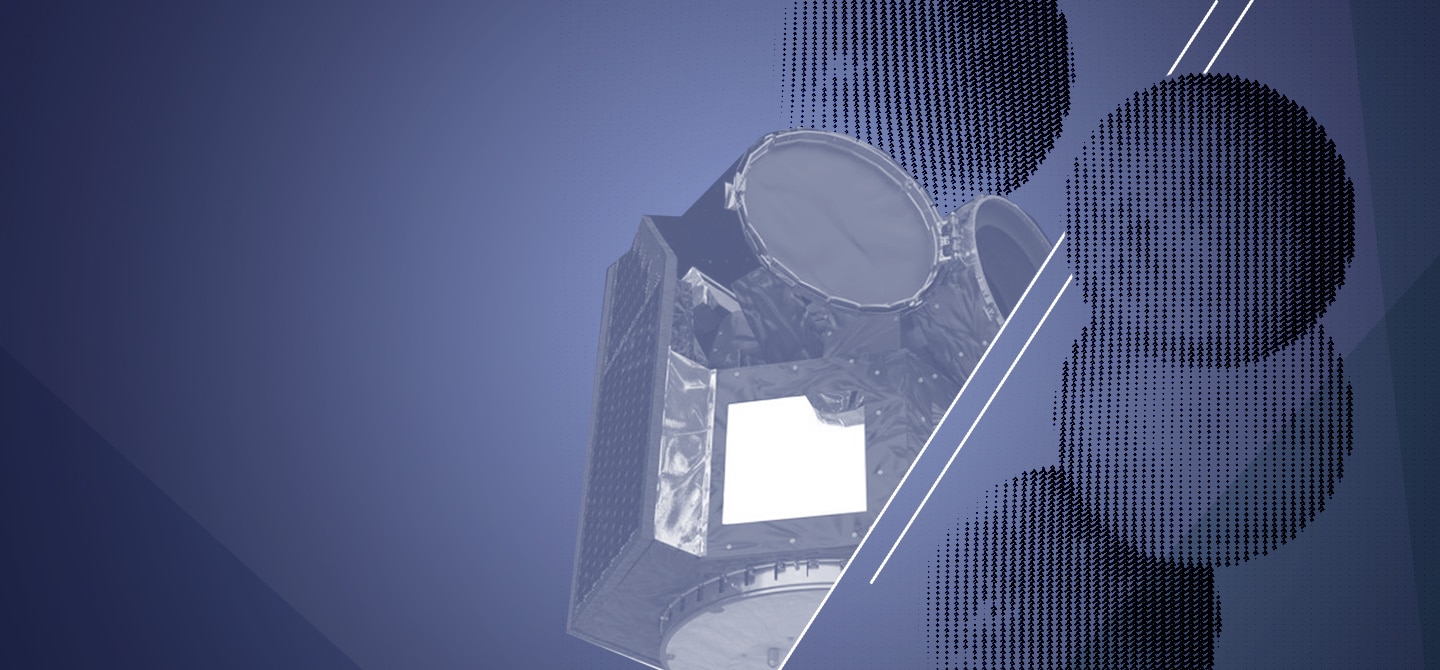New markets, new stakeholders, new professions: the satellite sector currently shows exponential growth. It remains a central issue for States, yet the market also seems to be opening itself up to the private sector as well – both big groups or innovative start-ups. Murielle Lafaye is head of the Business Intelligence Centre (pôle Intelligence économique) at the National Centre of Space Studies (CNES, Centre National d’Études Spatiales). Her mission is to gather information on issues around space economy and to identify the growth dynamics of this highly competitive market.
What is the principal transformation have you observed in today’s satellite market?
Murielle Lafaye. The major upheaval is that, over the past 5 years, the satellite market has shifted from a sector focused on institutional and defence needs, to a more classic economic model based on services. In 2015, under the impetus of the American government, public authorities abandoned their inherited model of satellites to favour ad-hoc purchases of services from private companies. It is a real paradigm shift!
These procurements of services by public authorities are also what allow new players to prosper, even though they are not always profitable. Planet (formerly Planet Labs) and other new actors in the observation of Earth thus receive orders from the National Geospatial-Intelligence Agency, which is part of the U.S. Department of Defense.
But lately, the private sector is also interested in these new space companies. Even if their investments are smaller than those of public institutions (in 2019, 95% of investments were from the public sector as opposed to only 5% from the private sector), they are on the rise each year. Furthermore, some clients and investors have begun to join the boards of directors. For example, the Climate Corporation, a subsidiary of Monsanto-Bayer, joined the board of Planet. Their aim is to influence the objectives of space missions to generate information more adapted to their business. Perhaps they could even influence the production of satellites in the long run. Overall, the diversity and the amount of these funds is what makes it possible for new companies to challenge historical actors. Planet is now in third place on the space imagery market, just behind Maxar and Airbus.
In what ways are these new operators disrupting the space economy?
Up until now in space telecommunications, companies mainly put satellites in geostationary orbit. They were produced one by one and cost several $100M. Today, SpaceX (with Starlink), Amazon (with Kuiper), or the Canadian Telesat, want to create mega-constellations of several dozens of thousands of satellites: something that was unconceivable only a few years ago.
However, the innovations of companies that engage in the market are not only quantitative. We are now able to make satellites capable of generating medium-resolution images (5 to 10 m) of the surface of Earth for a few $1M. More and more operators even offer metric resolution observations: such a precision was up to now the prerogative of governments and their intelligence services.
Many companies, like the Chinese company Jilin or the American company Planet, have thus specialised in the observation of Earth, to detect or manage natural disasters, to follow agricultural production, or to observe oil and gas infrastructures. In the case of Planet, the rise of private investments allowed the company to rapidly undertake big mergers and acquisitions. Hence, it acquired two companies using satellites to provide high-resolution images of natural and urban environments: the historical provider Blackbridge and its RapidEye satellites in 2015, and the Terra Bella satellites, after reaching an agreement with Google in 2017.
How do you explain the exponential growth of the number of satellites produced?
By the strong need for connectivity, and the need to manage vast flows of information. Terrestrial infrastructures are no longer sufficient. Therefore, it is necessary to seek a complementary solution in space. New activities for space in space will also require connectivity and powerful means of communication.
The increase in production was made possible by the expansion of the satellites market, the optimisation of production lines (particularly due to robotisation), and the miniaturisation of electronics. The combined have resulted in a significant decrease in cost, and explains the abundance of initiatives. Historically, satellites were produced one by one and for a specific mission, whereas now, they are mass-produced.
The main issue today has become access to launchers: there are not enough to meet demand in the face of the abundant production of satellites. The cost of launching has been reduced. This has made space more accessible and increased demand. Everywhere in the world, engineers work on this issue: there are no less than 150 projects on micro-launchers at present. Even if they do not all come to fruition, it shows the dynamics of this sector, in which many new professions are created to organise production, tests, transportation, and the integration of these satellites on the launch system. We are also seeing the growth of professions such as satellite constellation operators, and brokers, who buy the available places on launchers to resell them at retail, taking a commission in the process.
Has this rise of the private sector led States to take a step back?
Not at all! They rely more and more on the private sector, but States are not withdrawing from the space sector, as it remains an issue of sovereignty. The Minister for the Armed Forces, Florence Parly, thus stressed in her speech in January 2020 that “our satellites and their protection are a strategic imperative”. To address the risks in orbit (proliferation, debris, espionage…) and protect their satellites, the French Space Command and the North Atlantic Treaty Organisation (NATO) thus decided to create the Space Centre for Excellence (Centre spatial d’excellence) in Toulouse, which will become operational in 2023.
Many States, formerly clients of European or American historical actors, are seeking to regain control of the satellite sector by encouraging the creation of national companies. This is particularly the case in China: the country tries to keep up with the United-States and will probably produce national counterparts to Starlink and Kuiper. It is also the case in India: the 15th of February 2021, the Indian government announced its wish to also create new national companies in order to address issues of Earth observation, communication and/or connectivity.
Moreover, States continue to play their regulatory role. France, for example, created a law on Space Operations (Loi sur les Opérations Spatiales – LOS) to force operators to equip their satellites with thrusters to deorbit them at the end of their lives and avoid space pollution. Therefore, the access to space is not becoming entirely privatised, rather it is becoming more open.
Interview by Juliette Parmentier
















